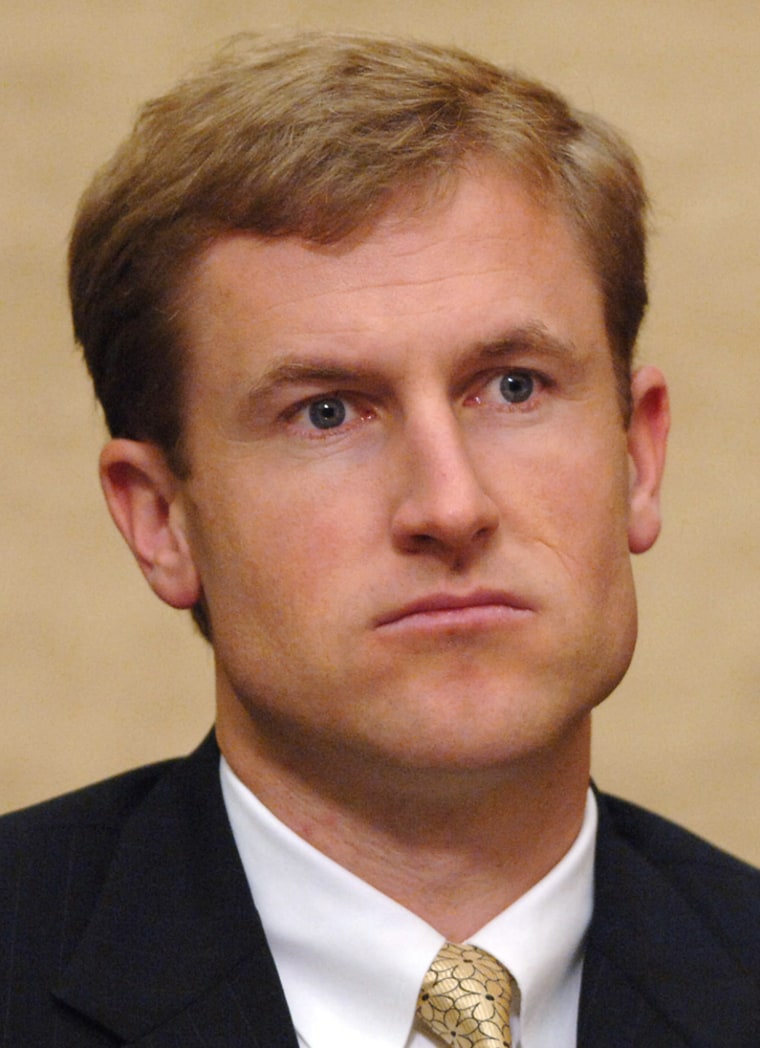A federal jury on Monday convicted San Diego’s new acting mayor and a city councilman of taking payoffs from a strip club owner to help repeal the “no-touching” ordinance at nude clubs, the latest blow to a city already awash in scandal.
Michael Zucchet, who became interim mayor over the weekend, was found guilty of conspiracy, extortion and fraud on his first business day in office. He was immediately suspended from office, his attorney said.
Councilman Ralph Inzunza, who was convicted of the same charges, also was suspended.
The jury also returned guilty verdicts against former Clark County, Nev., Commissioner Lance Malone, who worked for strip club owner Michael Galardi to repeal San Diego’s ban preventing nude dancers and patrons from touching each other.
Rudderless city in trouble
It is unclear who will succeed Zucchet, whose conviction leaves the city rudderless at one of the most troubled points in its history. Mayor Dick Murphy resigned and left office Friday, seven months into a second term cut short by mounting problems at City Hall.
At a subdued meeting Monday afternoon, the six remaining City Council members put Councilwoman Toni Atkins temporarily in charge of the body. The chairs where Murphy, Inzunza and Zucchet once sat were empty.
Next week, the council will elect a mayor pro tem to serve until a new mayor is sworn. A July 26 election is set to pick Murphy’s permanent replacement — though that election is expected to require a November runoff of the top two finishers.
The verdicts were reached on the fourth day of deliberations.
Zucchet and Inzunza, both 35, were accused of taking $34,500 in cash bribes and campaign contributions from Galardi in a failed plot to repeal the city’s “no-touch” ordinance. Malone allegedly delivered the wads of cash from Galardi to Inzunza and Zucchet.
Zucchet, Malone and Inzunza could each face three to four years in prison.
Juror: ‘They wanted the money’
Juror Niki Coates, 59, said she believed Inzunza and Zucchet were motivated by greed.
“I really believe the councilmen knew the plan would never work, that they thought it was a really stupid plan, but they wanted the money,” she said.
The R-rated trial began in May and featured hours of wiretapped conversations, lunches and locker room meetings and a 310-pound bodybuilder turned FBI informant.
The prosecution’s key witness was Galardi, the owner of Cheetahs strip club in San Diego and three other nude bars in Las Vegas. Galardi testified that he hatched the plan to bribe Zucchet and Inzunza because San Diego’s “no-touch” law was hurting business at Cheetahs.
Galardi pleaded guilty to conspiracy and is awaiting sentencing. He also has pleaded guilty in a parallel corruption probe in Las Vegas, which is scheduled for trial in January.
‘Plausible deniability, baby’
Prosecutors said the evidence of the plot could be found on secretly recorded conversations dating to 2001. In one 2003 conversation, Malone told a Las Vegas strip club employee before he posed as a concerned San Diego citizen at a council committee that the less he knew about the plot the better.
“It’s called plausible deniability, baby,” Malone said.
After a 2½-year investigation, FBI agents swarmed City Hall in May 2003, a few weeks after that conversation, searching the offices of Inzunza, Zucchet and Councilman Charles Lewis, who was indicted but died last year of liver disease.
During the trial, defense attorneys sought to portray Zucchet’s and Inzunza’s dealings with Malone as part of the legislative process and suggested that their clients — both Democrats — were being targeted by a Republican U.S. Attorney for political reasons.
“Does anybody think we’d be here if this case involved real estate development?” Michael Pancer, Inzunza’s attorney said during closing arguments that stretched over four days.
